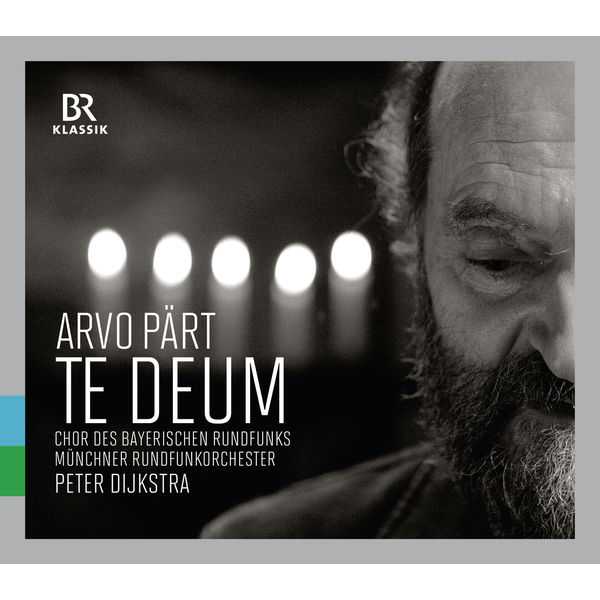

Composer: Arvo Pärt
Performer: Chor des Bayerischen Rundfunks
Orchestra: Münchner Rundfunkorchester
Conductor: Peter Dijkstra
Format: FLAC (tracks)
Label: BR Klassik
Catalogue: 900511
Release: 2015
Size: 641 MB
Recovery: +3%
Scan: yes
01. Te Deum
02. Wallfahrtslied (Version for Male Choir & String Orchestra)
Berliner Messe (Version for Choir & String Orchestra)
03. Kyrie
04. Gloria
05. Dopo la vittoria
Berliner Messe (Version for Choir & String Orchestra)
06. Credo
07. Sanctus
08. Agnus Dei
CDs from BR-KLASSIK and the Chor des Bayerischen Rundfunks conducted by Peter Dijkstra are regular winners of prestigious awards – two such being the Strauss-Wagner-Mahler recording, which won the Diapason d’or, and the Concerto for Choir by Alfred Schnittke, which won the ECHO Klassik. In this latest recording of sacred music by Arvo Pärt, the Chor des Bayerischen Rundfunks is joined by the Münchner Rundfunkorchester. The two ensembles frequently perform together in their concert series, which regularly include sacred music from the 19th, 20th and 21st centuries. The present CD production focuses on four compositions by the Estonian composer Arvo Pärt (born 1935). They were written in 1984, 1990 und 1997 in the composer’s own tintinnabulation style of composition (from the Latin word for the ‘ringing of bells’). In his Te Deum, Pärt makes a conscious departure from the traditionally powerful and festive sound of such precursors as Charpentier, Bruckner and Verdi. The restraint of the Wallfahrtslied (Pilgrims’ Song), a setting of Psalm 121, evokes the ancient Judeo-Christian tradition of psalm recitation. Dopo la vittoria was commissioned by the City of Milan for the 1600 year celebration of the death of St. Ambrose (1997). The Berliner Messe (Berlin Mass) is so named because it was first performed in the city’s St. Hedwig’s Cathedral (1990) to mark the German Katholikentag (Catholics Day).